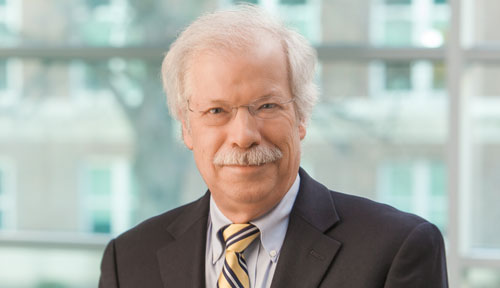NOTE TO MEDIA: Here's a video featuring Edibaldo Silva, M.D., Ph.D., a UNMC surgical oncologist.
The fear of breast cancer hangs over many women like a dark cloud.
They are afraid of the breast cancer they have or fearful of the breast cancer diagnosis they someday might receive.
Edibaldo Silva, M.D., Ph.D., professor of surgical oncology at the University of Nebraska Medical Center, understands why some women prefer to take immediate, even drastic, action in order to achieve peace of mind.
But Dr. Silva, who specializes in the research and treatment of breast cancer, counsels his patients to stop, take a breath, and sit down with their team of health care providers to determine their condition and discuss their options first.
A week or two or three of gathering information won’t hurt your long-term prognosis, he said: “We have to assure the patient that things don’t change in a day or two or three or four or five or six or seven or eight.”
But increasingly, “What you see in the U.S. now is women have a lump in the breast and they find it’s cancer, and the next day they are having bilateral double mastectomy,” Dr. Silva said. “No consideration of counseling, genetic testing, none of that.”
In fact, on average, among women who have a double mastectomy in the U.S., Dr. Silva said only 29 percent ever even discuss the subject with a genetic counselor to see if they carry mutated BRCA genes which cause breast and incurable ovarian cancer.
Studies by the University of Michigan, the Mayo Clinic and others show most women are doing it out of fear.
Dr. Silva empathizes. But he said it’s important to remember that only 5 percent of women who contract breast cancer have “bad genes.” The rest, he said, simply had “bad luck,” likely a one-time occurrence.
And their cancer is often best treated with lumpectomies and radiation, the effectiveness of which “we know is equivalent to mastectomy,” Dr. Silva said.
A possible option for many women diagnosed with breast cancer could be to start chemotherapy while simultaneously taking the time to gather information, Dr. Silva said.
First, it’s doing something; it is actively fighting the cancer. Second, if surgery is necessary, chemotherapy is a head start, making the surgery more effective and easier to complete. And third, in some cases, the cancer may be gone by the end of the chemo treatment.
“And by gone, I mean you can’t find it,” Dr. Silva said.
If you are worried that you carry the BRCA gene mutation, draw up your family tree, Dr. Silva said, and visit with a genetic counselor to see if you should get further testing.
“The odds are overwhelmingly in your favor that you are not a gene carrier,” Dr. Silva said.
But if you are among the statistically select few, it is serious.
Those who do have the mutated genes but do not have cancer eventually will need a double mastectomy and removal of their ovaries. The gene causes a 20 to 40 percent risk of developing incurable ovarian cancer, Dr. Silva said.
Through world-class research and patient care, UNMC generates breakthroughs that make life better for people throughout Nebraska and beyond. Its education programs train more health professionals than any other institution in the state. Learn more at unmc.edu.
Twitter | Facebook | Pinterest | YouTube
